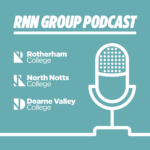T Level Focus: North Notts College, Worksop
This week we are formally launching our five new facilities at North Notts College, with four of them dedicated to T Levels.
T levels are new level 3 courses that are designed to be equal to three A-levels with an additional focus on practical skills.
North Notts College offers T Levels in Business and Administration, Construction, Digital, Early Years and Education, Engineering and Manufacturing and Health.
New Facilities
New facilities have been developed in Construction (Joinery), Digital, Early Years and Education and Health and we are delighted to be able to showcase these in a special opening event this week.
If you did not get the chance to view these facilities which students have been enjoying since Autumn last year at our open event held last Saturday 1st February, you can do one of three things:
1 – Come to our next open event on Saturday 22nd March between 10am-12pm and view these amazing facilities, talk to our staff and enjoy breakfast as well.
2 – Book a personal tour at any time to suit you.
3 – Check if your young person’s school is part of the School’s Partnership Programme through which they can enjoy a taster day where they can try out our new facilities and enjoy a free lunch and transport.
Don’t forget to look out for more information on T Levels next week during National Apprenticeship Week and T Level Thursday!
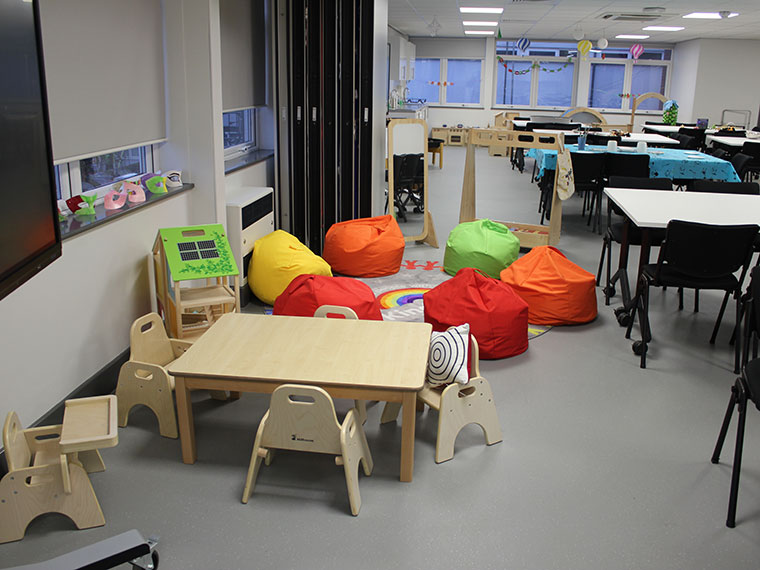
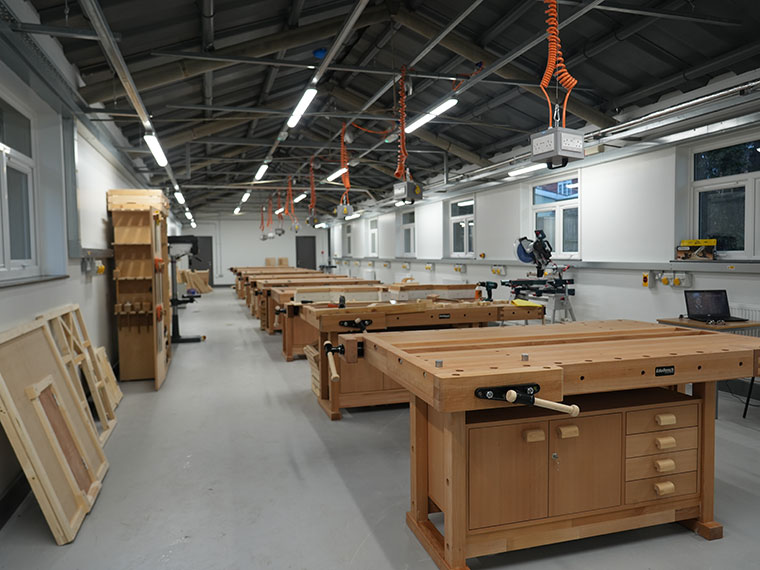
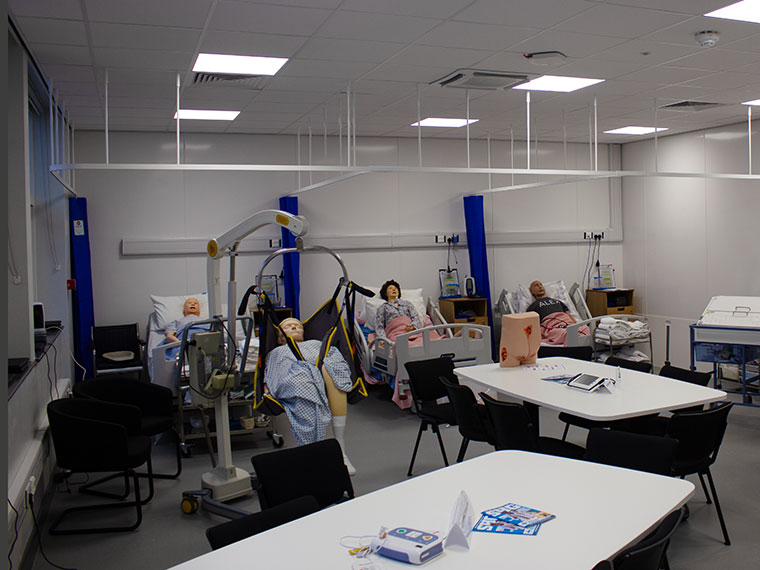
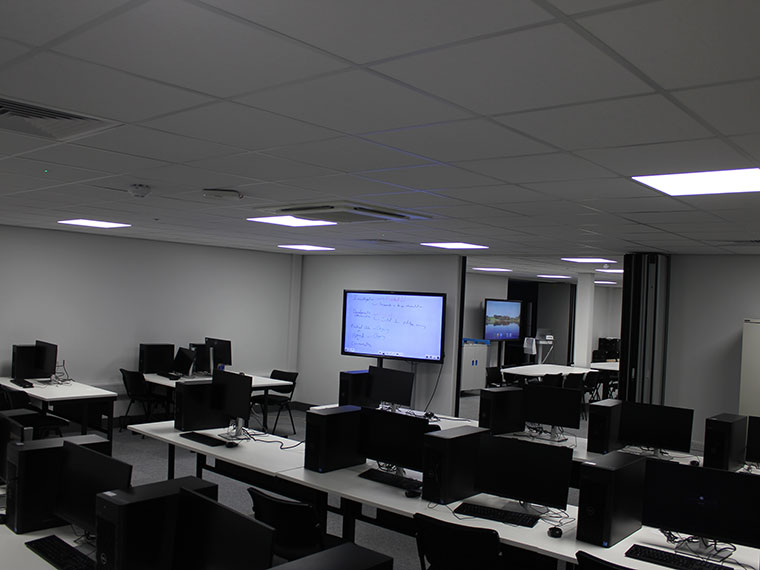
T Levels
T Levels are important in the development of the skills and will become one of the main choices for students after GCSEs alongside:
- Apprenticeships for students who wish to learn a specific occupation ‘on the job’
- A-levels for students who wish to continue academic education
- Other qualifications not served by A-levels or T levels, including sport science, performing arts and small qualifications designed to be taken alongside A-levels
The Department for Education (DfE) is streamlining and improving the quality of the post-16 level 3 qualifications system. They are strengthening progression pathways, creating clearly defined academic and technical routes with high quality qualifications leading to further study, and/or skilled employment. This will help students to make good choices and see more easily how their study will help them to progress.
T Levels differ from an apprenticeship. T Levels prepare students for work, further training or further study. An apprenticeship is typically 80% on-the-job and 20% in the classroom and is more suited to those who want to earn a wage and learn at the same time, and are ready to enter the workforce at age 16.
How T Levels have been developed
Employers and providers work together to develop each T Level, with support from DfE. Groups of employers have defined the skills and requirements for each T Level course by participating in T Level panels. This ensures that students taking T Levels will develop the technical knowledge and skills required by employers in that industry.
The T Level panels have developed the content for the technical qualifications which are part of each T Level programme, based on the same standards as apprenticeships. These plans are then tested and reviewed with students, education providers and additional employers.
Structure of a T Level
T Levels require students to undertake both a technical qualification and an industry placement with an employer.
Students are also required to work towards the attainment of maths and English if they have not already achieved grade 4 at GCSE, as students do on other 16 to 19 programmes.
However, T Level students are no longer required to achieve either a grade 4 in maths and English GCSE or level 2 in functional skills to pass their programme.
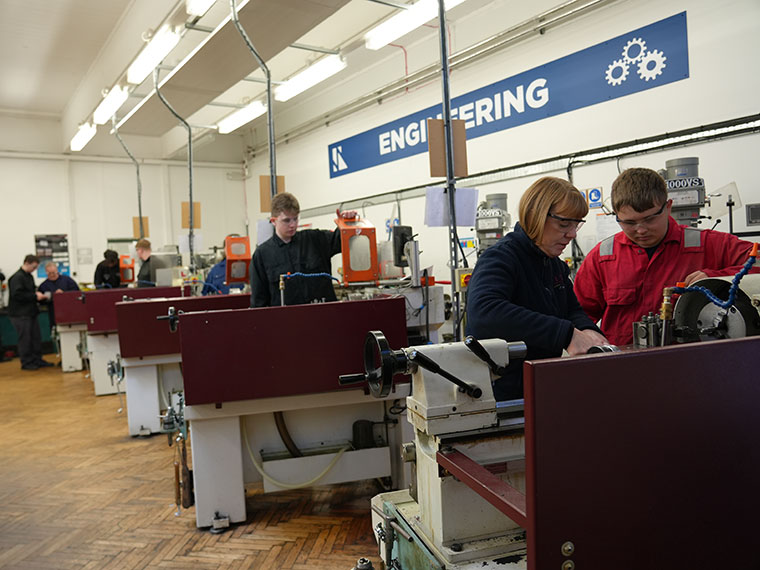
Transition programme
The T Level transition programme is a 1-year post-GCSE study programme designed to support progression to, and success on, a T Level. It’s aimed at students who would like to do a T Level but would benefit from additional preparation and support before starting one.
The programme gives students the opportunity to study technical content aligned to T Levels and develop their English, maths and digital skills, alongside work experience and personal development.
The T Level transition programme framework for delivery has guidance on how the programme should be delivered from academic year 2022 onwards.
RNN Group offers translation programmes in T Levels on all its T Level courses.
Industry placements
Every T Level includes an industry placement with an employer focused on developing the practical and technical skills required for the occupation. These will last a minimum of 315 hours (approximately 45 days) but can last longer.
Employers can offer industry placements as a block, day release or a mix of these, and can discuss sharing part of the placement with another employer if necessary.
Providers will support employers offering industry placements. This will include assistance with paperwork, a careful planning process and support with designing the industry placement.
DfE’s employer engagement teams work with employers of all sizes and providers on industry placements.
Employers interested in finding out more about industry placements can contact 08000 150 600, email tlevel.placement@education.gov.uk or visit T Levels and industry placement support for employers.
Grading and certification
Students who complete their T Level get a nationally recognised certificate which shows their overall grade and a breakdown of what they have achieved.
The T Level certificate includes:
- An overall grade for the T Level, shown as pass, merit, distinction or distinction*
- A separate grade for the core component, using A* to E
- A separate grade for each occupational specialism, shown as pass, merit or distinction
It also confirms that the student has:
- Completed the industry placement
- Met any additional mandatory requirements
A student’s overall T Level grade is worked out from the grades they achieved on the core component and the occupational specialism(s).
Students who do not pass all elements of their T Level get a T Level statement of achievement which shows the elements they have completed.
If students have attained maths or English qualifications at level 2, this is also referenced on T Level certificates and statements of achievement.
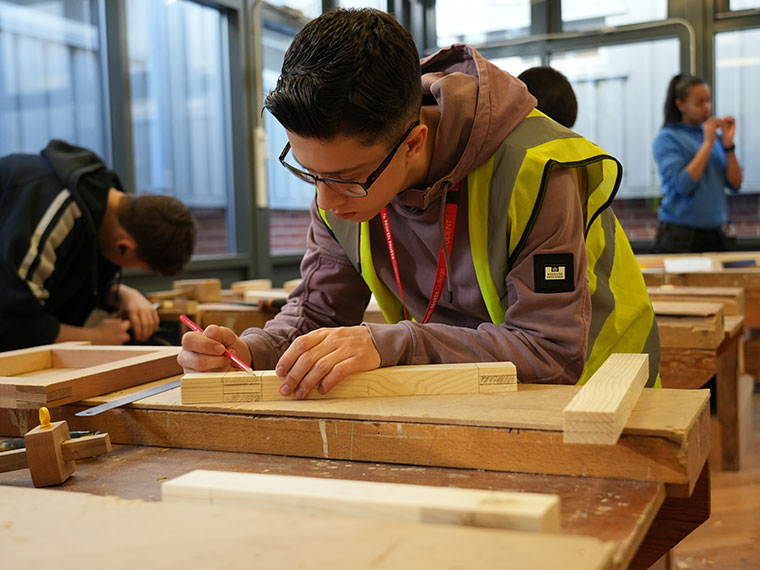
Entry to higher education and UCAS tariff points
T Levels provide several progression options for students, including:
- Skilled employment
- An apprenticeship
- Higher education
To help T Level students progress into higher education, UCAS tariff points are allocated to T Levels.
UCAS points are allocated to the overall T Level grade. Students must achieve at least an overall pass grade to receive UCAS points.
| UCAS tariff points | T Level overall grade | A-level |
|---|---|---|
| 168 | Distinction* (A* on the core and distinction in the occupational specialism) | AAA* |
| 144 | Distinction | AAA |
| 120 | Merit | BBB |
| 96 | Pass (C or above on the core) | CCC |
| 72 | Pass (D or E on the core) | DDD |
To support students that partially achieve their T Level, UCAS tariff points are also available for both elements of the technical qualification:
- An allocation for students that have passed the core component and completed the industry placement
- An allocation for students that have passed the occupational specialism component and completed the industry placement
As the relative weighting of the core and occupational specialism for each T Level varies, the UCAS points for partial achievement will also vary across T Levels.
Further information
For more information on T Levels, visit the below blogs, or come and see us on our next open day:
The difference between T Levels and other Vocational Qualifications
T Levels or A Levels – which one should I choose?
How will T Levels help my young person?
Information on industry placements for employers and students
Hear from employers, students and parents!












